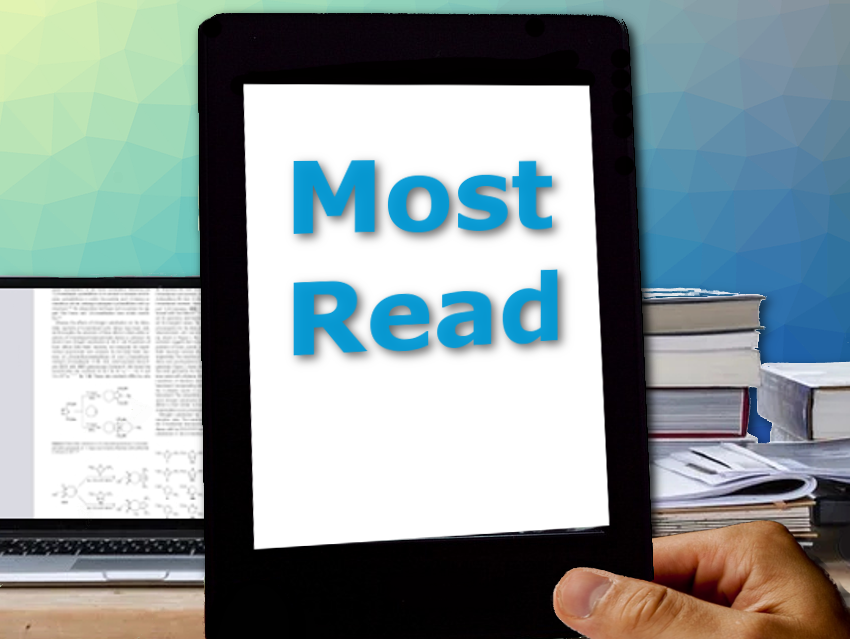Summer is the perfect time to take a break from the lab and catch up on some leisure reading. But this does not mean that you need to do away with science entirely. ChemViews Magazine has collected recommendations by Editors for entertaining books related to chemistry and science.
You can add your own recommendations in the comments section below.
 |
The Chemistry Book: From Gunpowder to Graphene, 250 Milestones in the History of Chemistry This book summarizes major developments in chemistry and its associated industries. It is arranged in chronological order, starting in 500,000 BC with natural crystal formation, and ending in 2030 AD with artificial photosynthesis. (suggested by Costas K. Agalou, Journal of Chemical Technology & Biotechnology) |
|
|
|
 |
Why Does Asparagus Make Your Wee Smell?: And 57 other curious food and drink questions This book deals with the science behind the effects that food and beverages we consume every day have on our body. (suggested by David Bradley, sciencebase.com) |
|
|
|
 |
Stuff Matters: Exploring the Marvelous Materials That Shape Our Man-Made World This book is an entertaining look into the chemistry and materials science of everyday objects. (suggested by Matteo Cavalleri, International Journal of Quantum Chemistry) |
|
|
|
 |
Do You Believe in Magic?: The Sense and Nonsense of Alternative Medicine This book is an accessible exposé on the alternative medicine industry that stresses the importance of evidence-based healthcare and scientific scrutiny. (suggested by Tamaryin Godinho, Angewandte Chemie) |
|
|
|
 |
Bright Earth: Art and the Invention of Color This book describes the role of color in art and how 19th century breakthroughs in color science were crucial to Modern Art. (suggested by Vera Köster, ChemistryViews.org) |
|
|
|
 |
Algorithms to Live By: The Computer Science of Human Decisions This book explains how to make decisions more efficiently by connecting classic computer science algorithms to real-world scenarios. You might be surprised by which problems are the hardest to solve. (suggested by Claire Cobley, ChemNanoMat) |
|
|
|
 |
Francis Crick: Discoverer Of The Genetic Code This book chronicles the life of Nobel Laureate Francis Crick, one of the discoverers of the structure of DNA. It follows his path from mediocre student to breakthrough scientist in a very engaging and colorful way. (suggested by Catharina Goedecke, ChemistryViews.org) |
|
|
|
 |
Oxygen: A Play in 2 Acts This play deals with the discovery of oxygen and the moral consequences of competition between scientists. (suggested by Xin Su, Advanced Materials) |
|
|
|
 |
The Food Lab: Better Home Cooking Through Science This book combines science and recipes and presents them in full-color images. Explore the science behind culinary techniques and flavors and use that knowledge to prepare perfect versions of your favorite meal. (suggested by David Peralta, ChemMedChem) |
|
|
|
 |
The Innovators: How a Group of Hackers, Geniuses, and Geeks Created the Digital Revolution This book tells the story of how people across the globe worked together (or didn’t!) to create the technology we take for granted today. (suggested by Claire Cobley, ChemNanoMat) |
|
|
|
 |
Never Lose Your Nerve! Alan J. Heeger, who shared the Chemistry Nobel Prize in 2000 with Hideki Shirakawa and Alan G. McDiarmid for the discovery of conducting polymers, describes his life journey to Stockholm and beyond. (suggested by Costas K. Agalou, Journal of Chemical Technology & Biotechnology) |
|
|
|
 |
Gut: The Inside Story of Our Body’s Most Underrated Organ This book presents the science of an organ which is usually taboo: the gut. It explains the inner workings of our digestive system in an unexpectedly entertaining manner. (suggested by Cordula Buse, ChemBioEng Reviews) |
|
|
|
 |
The Poisoner’s Handbook: Murder and the Birth of Forensic Medicine in Jazz Age New York This is a book on the sinister side of chemistry, but also on the rise of forensic science and how chemistry ultimately won the war against poisoners. (suggested by Matteo Cavalleri, International Journal of Quantum Chemistry) |
|
|
|
 |
Handbook of Bibliometric Indicators: Quantitative Tools for Studying and Evaluating Research This handbook is a comprehensive dictionary of citation indices and other bibliometric indicators. (suggested by Eva Wille, Executive Director Chemistry, Wiley-VCH) |
|
|
|
Also of Interest
-
Please add your own book recommendations in the comments section below




